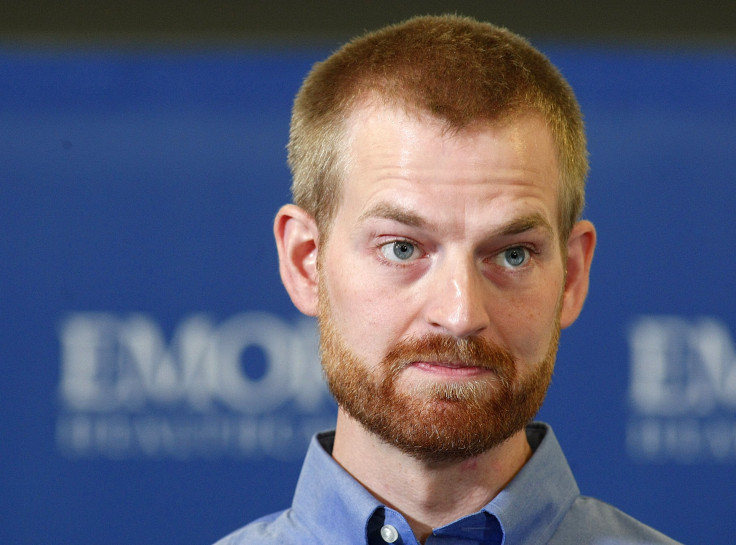Ebola Outbreak 2014: Survivor Dr. Kent Brantly Donates Blood To Dr. Rick Sacra To Help Fight Virus

Dr. Kent Brantly, an American missionary doctor who survived his fight with Ebola, donated a unit of blood to Dr. Rick Sacra, a fellow doctor fighting for his life against Ebola after contracting it in Liberia, according to NBC. Brantly himself received a unit of blood from a Liberian boy who survived Ebola under Brantly’s care.
Survivors of the Ebola virus build up antibodies against the virus in their blood and become immune to the strain that infected them. Doctors hope that the antibodies will help someone battling the virus to more quickly build up their own. Remarkably, Dr. Brantly and Dr. Sacra’s blood are a “perfect match,” according to Franklin Graham, the President and CEO of Samaritan’s Purse, the aid organization Sacra and Brantly served with in Liberia.
“Dr. Brantly said that when he saw [Dr. Sacra] last week he was in pretty bad shape,” Graham said. "It sounds like he has made a dramatic turn… [Dr. Brantly] wanted to keep it quiet because he doesn’t want anyone to believe he is a hero.”
The medical community hasn’t come to a determination on whether or not blood transfusions from survivors can help a patient survive Ebola, but a World Health Organization board came out in support of such transfusions last Friday, saying they need “to be considered as a matter of priority.”
There is no cure for Ebola, instead doctors focus on keeping patients hydrated and comfortable. Symptoms include vomiting, internal bleeding and diarrhea. The outbreak in West Africa has a fatality rate of around 66 percent. The virus has killed over 2,200 people in West Africa since late 2013/early 2014. Nearly half of those deaths and cases occurred in the last three weeks.
An experimental treatment called ZMapp was given to Dr. Brantly and his colleague Nancy Writebol, who also survived. ZMapp reportedly brought Dr. Brantly back from the brink of death, but doctors are hesitant to call it a viable treatment because its been used in so few cases. Some other patients treated with ZMapp have not survived.
Dr. Rick Sacra is being treated at a state-of-the-art facility in Omaha, Nebraska.
© Copyright IBTimes 2025. All rights reserved.






















